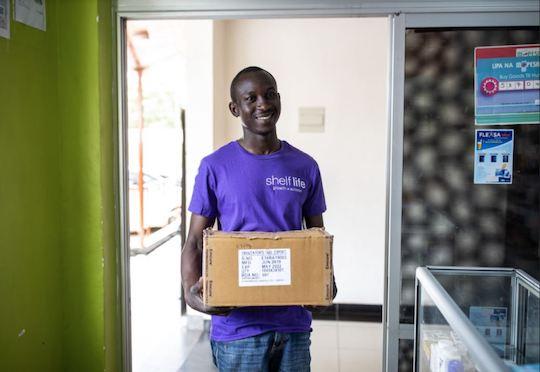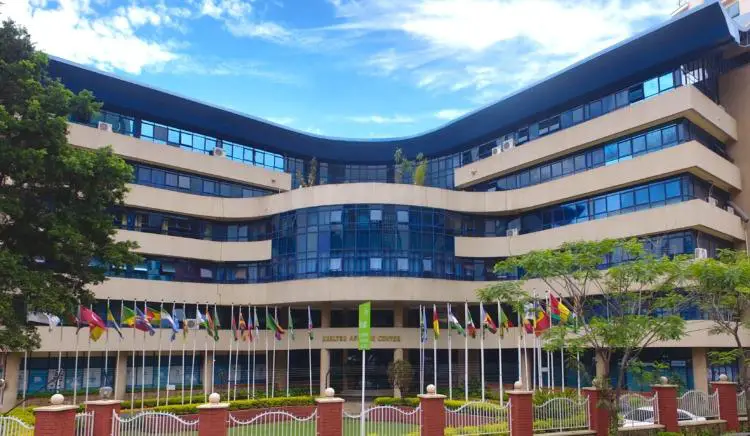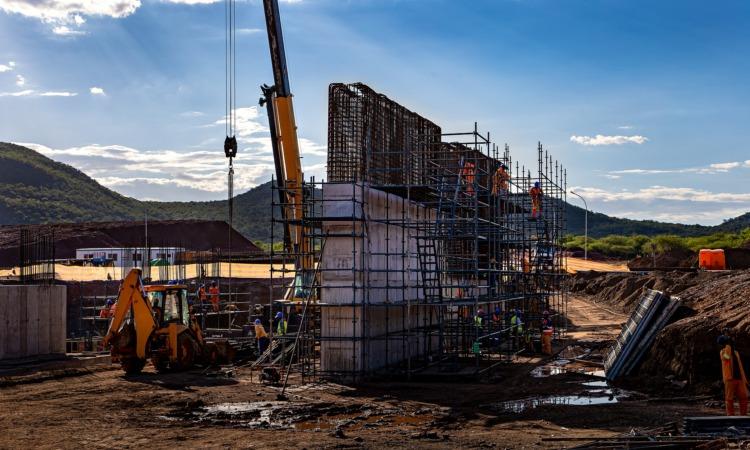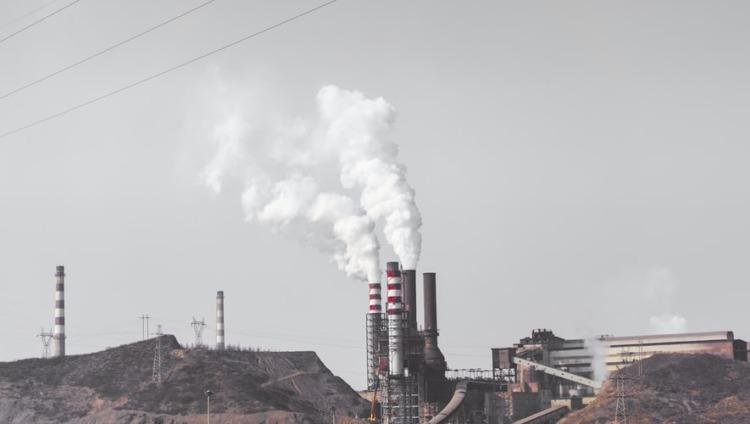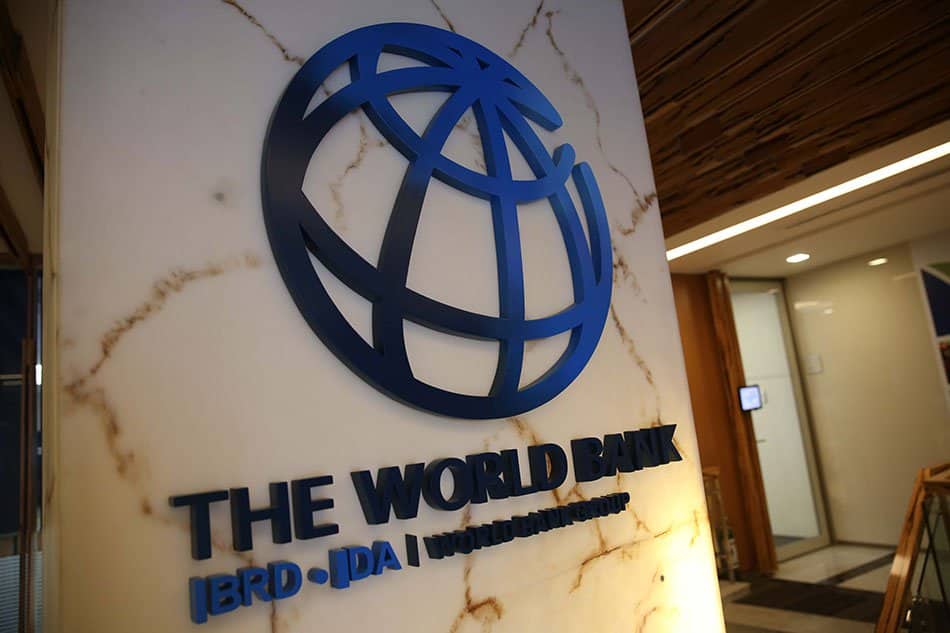- Abu Dhabi radiates optimism as over 300 startups join AIM Congress 2024
- TLcom Capital Raises $154 million in Funding to Boost Its African Growth
- Africa’s $824Bn debt, resource-backed opaque loans slowing growth — AfDB
- LB Investment brings $1.2 trillion portfolio display to AIM Congress spotlight
- AmCham Summit kicks off, setting course for robust future of US-East Africa trade ties
- Why the UN is raising the red flag on the UK-Rwanda asylum treaty
- Portugal’s Galp Energia projects 10 billion barrels in Namibia’s new oil find
- Wärtsilä Energy offers tips on how Africa can navigate energy transition and grid reliability
Browsing: Nigeria
Field Intelligence, a Nigerian healthtech startup has announced its plans to expand into new cities across East and West Africa.
Formed in 2015 to transform the role of technology, business, and supply chain in sustainable, equitable development in Africa, the firm is planning to expand into Rivers, Edo, Kaduna, Kano, Enugu, Delta and Kwara States in Nigeria, and Eldoret, Mombasa, Kisumu and Naivasha in Kenya.
Quality healthcare across Africa
The expansion will build on Field Intelligence’s existing 700+ pharmacy membership, which has served over 1.4 million patients to accelerate quality frontline healthcare across Africa.
The firm in 2016 began development of Field Supply, an offline-first SaaS solution simplifying the process of digitizing and optimizing large-scale supply chains, and Forth, a fourth-party logistics service leveraging Field Supply with the mission to upskill Africa’s underutilized informal transport labor to extend last-mile delivery at scale.
Independent and franchise pharmacies can …
As of July 1, price for petroleum products in Tanzania increased drastically owing to the amendments outlined in the country’s new Finance Act as passed by parliament. A huge chunk of the money you pay at the pump goes to the government in taxes; in fact the government takes anything between 30 and 40 percent in form of taxes, levies and regulatory fees.
Nonetheless, Tanzania’s Energy and Water Utilities Regulatory Authority (Ewura) still attributed the price hike to global trends, in part admitting to the tax effect and in part deflecting it to global trends.…
That year, in 2015, Kenya, Rwanda, Uganda, and Tanzania settled for a three-year plan to phase out the importation of used clothes, a major exporter been the United States. To realise the intended ban, taxes were increased on second-hand clothes were increased effectively deterring their importation. The plan was to completely ban the import of second-hand clothes as of 2019.
This ambitious vision was never realized as the Trump administration issued an ultimatum for EAC to rescind the ban on second-hand clothes by 23 February 2018 or, as the DW writer Isaac Mugabi puts it ‘face the consequences.’…
The Major Oil Marketers Association of Nigeria (MOMAN) has indicated interest in lifting refined petroleum products from the soon to be completed $15 billion Dangote Refinery, in Lagos.
Once complete the refinery on daily basis is expected to produce 50 million litres of petrol and 15 million litres of diesel.
In a statement notice issued by the Dangote Group on Sunday July 3, noted that the Major Oil Marketers made this request during a recent visit to the site of the 650,000 barrels per day single train refinery in Ibeju-Lekki Lagos, according to the News Agency of Nigeria (NAN).
Speaking after the conclusion of his visit to the site, the Chairman of MOMAN, Mr Adetunji Oyebanji, said the refinery would play an important role in helping to remove the various bottlenecks associated with the importation of petroleum products into the country.
ALSO READ: Yaoundé Declaration To tackle Continent’s Affordable Housing …
African Ministers and Heads of Delegation of Ministries in charge of Housing and Urban Development, African Finance Ministers, the Directors and Management of Shelter Afrique, and representatives of international, regional and national institutions, the private sector and civil society, have agreed to enhance mechanisms for the mass production of decent and affordable housing in the continent to achieve social and economic development.
During a three-day summit at the 40th Annual General Assembly of shelter-Afrique that was held in Yaunde Cameroon, the participants resolved to address the challenges that have hindered the efforts to provide decent and affordable housing in Africa.
In a research concluded by the Shelter-Afrique, a pan African housing finance and development institution, shows that the overall shortage of housing in Africa is estimated at 56 million housing units with out of this, more than 90 per cent are in affordable housing bracket.
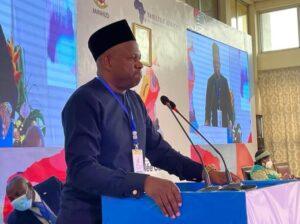
The Managing Director …
Is China is fueling Africa’s economy? That could be a question with so many angles to explore – such as – is it worth it for Africa to accept humongous loans from the industrial giant amid her journey to prosperity while opening doors for her nations to invest and heavily mark China’s ingenuity across continent-wide African infrastructure?
China, one of the world’s top economies provides eight types of foreign aid: complete projects, goods and materials, technical cooperation, human resource development cooperation, medical assistance, emergency humanitarian aid, volunteer programs, and debt relief (Brookings).
The World Bank has been ousted by China as the world’s largest bilateral creditor, making China the largest single country creditor on Planet Earth (The African Report, 2021).
In a larger context, Africa is now heavily being catered for financially by China. According to a report by The African Report, which cited data from China-Africa Initiative, between the …
The latest data from Organization of Petroleum Exporting Countries has showed that Crude oil production in Nigeria has fallen by 6.32 percent to 1.344 million barrels per day in May, 2021 as compared to 1.429 million barrels per day recorded in April 2021.
This report also shows that Nigeria’s average daily oil production in the first quarter of 2021 was 1.404mbpd compared to average daily oil production of 1.301mbpd recorded in the fourth quarter of 2020.
The production volumes are exclusive of condensate oil which is not part of OPEC reporting requirement.
According to a new report by the Nigerian Extractive Industries Transparency Initiative, NEITI, the total oil production in 2019 was 735.244mmbbls,which represented an increase of 4.87 percent over the 701.101mmbbls recorded in 2018.
The report showed that Production sharing contracts, PSCs, contributed the highest volumes of 312.042mmbbls followed by Joint Venture (JV) and Sole Risk, SR, which recorded …
Transport infrastructure is vital to developing countries because efficient and reliable transport networks are critical for local and international trade.
Transportation infrastructure, such as roads and railway systems, is one of the sectors most threatened by climate change. Extreme weather events such as flooding, sea-level rise, and storm surge have repeatedly wreaked Havoc on transport networks.
In Africa, extreme weather is a threat that can cause extensive structural damage. It can also accelerate the aging of infrastructure components which can lead to significant financial losses.
For instance, a recent report on Tanzania uncovered the vulnerability of the country’s transportation systems. Long stretches of road and rail networks are exposed to extreme flooding events, with growing exposure in the future.
The report estimated that worst-case disruptions to Tanzania’s multi-modal transport networks could cause losses of up to US$1.4 million per day. In addition, damage to these networks can disrupt the flow …
The lastmile fulfilment for importers Deliverasap.ng, providers in Nigeria celebrated the milestone of fulfilling over 450 orders, worth over $96,958.21, weighing over 1,700kg all this achieved within a pilot phase.
The company which was launched during the COVID-19 lock-down of 2020 officially joins the list of businesses birthed during the pandemic.
Engr Oyedayo Oyeniran a Serial Entrepreneur and who is the Co-founder and CEO had a one-on-one near frustrating experience running delivery errands for a friend who is into mini-importing. It was during that process that he had an aha moment the need for a specific lastmile fulfilment brand for mini-importers with a corporate identity that exudes confidence for patronage among busy importers, professionals, nursing mothers, out-of-Lagos importers, among others.

From July to December 2020 The company started operations activating one of its services which gained massive success without any form of paid marketing or advertisement.
In his words, Engr …
The World Bank Group has charged Nigeria and other African countries to embrace lower-carbon sources of energy in a bid to increase electricity access and also reduce subsidies being applied on fossil fuels.
According to the Bretton Wood institution, regions affiliated to the World bank ought to evaluate themselves on avenues to electricity access, in a economical way.
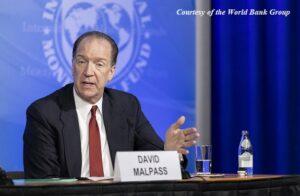
In a virtual press briefing the President of the World Bank Group, David Malpass, noted that the Bank intends to work with countries on their long-term strategy, by addressing questions as to where they will get the growth in electricity access that they need, and what are the lower-carbon sources of energy that are available.
“This might be hydro; it might be natural gas; it might be improvements in the transmission grid that save electricity and allow more renewables to be brought on stream.
“We have solar projects in many of the …





